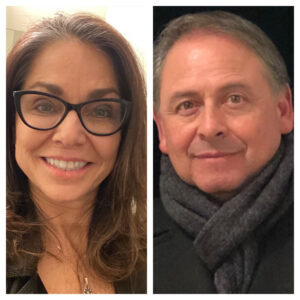Just days before the annual White House Correspondents Dinner in Washington a diverse panel of White House reporters addressed a mixed audience of student and professional journalists — mostly women — at a Town Hall, hosted by Viacom and BET Networks, at the WHUT Studio at Howard University.
Race and the lack of diversity in the newsroom were among the central themes discussed by Jim Avila, ABC News senior national correspondent and White House corresponden;, Andre Showell, BET news anchor and White House correspondent; Darlene Superville, Associated Press White House reporter, Juan Williams, Fox News political analyst and former White House correspondent; and Saraya Wintersmith, a Howard student and 2012 WHCA scholarship recipient.
While the Washington press corps has become more culturally diverse, they all acknowledged the lack of parity that still exists within the newsroom and the need to improve the depth and reach of news coverage in general.
The group shared their perspectives and experiences covering the first African American president of the United States, their take on the future of the evening news, and examined the urgent need for news organizations to make newsrooms more inclusive, diverse and reflective of the what they referred to as the "New American" audience.
In an era when readers want their information fast, and advertisers want the return on their investment more clearly defined, the news media has a responsibility to provide quality, relevant coverage. Members of the minority media have learned from personal experience that mainstream news networks cannot usually be relied on to report on their communities.
In the case of the largest minority immigrant population today, Hispanics, or Latinos, ABC's Jim Avila, said that network and cable news stations still don’t include enough stories on Latinos. The solution, he said, is recruiting more minorities — "behind the scenes" — within the newsroom. ABC, he said, has started a program to train minority producers, but he feels more could be done. "Perhaps, if we had more diversity in the newsroom – in decision making positions – the stories would reflect and possibly event attract more diverse audiences," Avila said.
Andre Showell, of BET, described his network's role as a source of specialized information and entertainment in the black community. He admitted that they have a clear advantage over the mainstream media, in terms of reaching their target audience, because they can draw their content ideas from staff that already reflects the network’s viewership. “I always ask myself how this story, issue, subject affects me," he said. “You have to be part of the community to report on the community.”
In the meantime, panelists encouraged students interested in careers within the news media to survey their friends and their communities to cover the stories that reflect their lives and to highlight the urgent need for news organizations to go further to make newsrooms more inclusive.
Jessica Coscia
Photo: REUTERS/Jonathan Ernst

